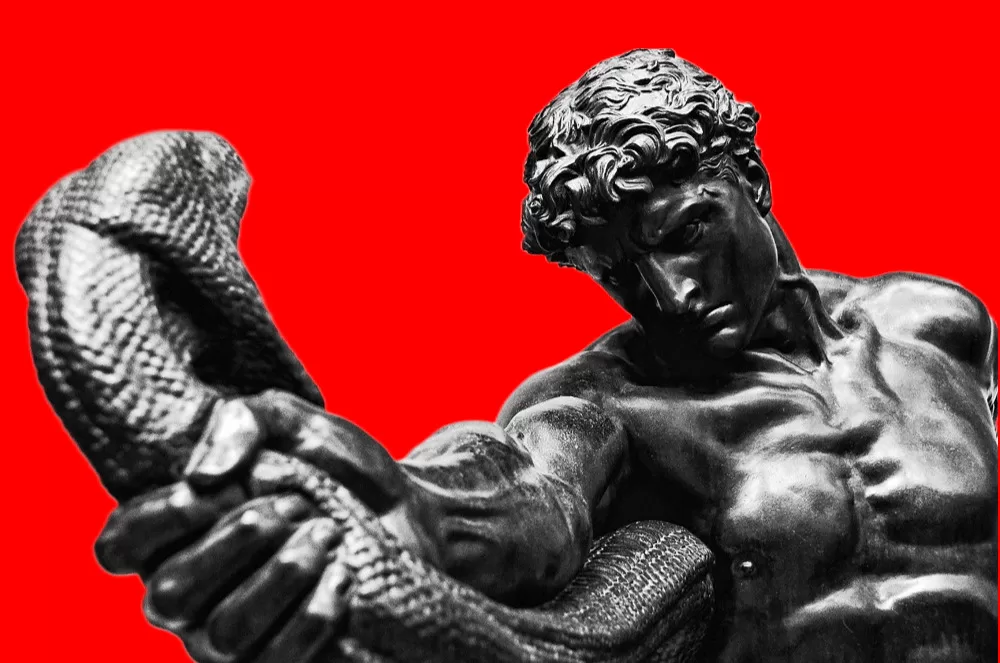“Of all the means I know to lead men, the most effectual is a concealed mystery.”
– Adam Weishaupt
The revolutionary creed of “liberty, equality, and fraternity” has its inception in dark “subterranean laboratories,” as George Sand puts it in The Countess of Rudolstadt. This war cry predates the French Revolution and was at first just “Liberty and equality.” Previous uprisings have flared up, fueled by this creed. This humanitarian-sounding maxim sounded fair and just to the illiterate masses of France. But this malicious motto carries within it a serpentine spell that shall forever cause chaos if it is set as the goal on any societal horizon.
Liberty, as ill-defined in the revolutionary mantra, was inspired, among others, by Rousseau and is understood as the capacity to live life without any restraint. To demand liberty for liberty’s sake is to abandon all limits to it, except those that would naturally occur in nature. Man in a state of nature is free from all restraints, save those imposed on him by the stronger. Pure liberty is a descent back into the most animalistic type of human experience possible. Making liberty an end is implicitly admitting that the laws of nature dominate this earth and one can never be free of them; one shall always be overcome by the stronger, and man is therefore innately unequal.
Equality is propped up as a holy companion of liberty, but these are mutually exclusive. Men in a state of nature are anything but equal. Not in their capacity to assert themselves in the world, not in their capacity to forge their own destiny, and not in death. As one man dies in his pursuit to impose his strength on the weak, the other man cowers in a corner and dies a cripple and old, starving or devoured. So, in order to get equality, there must be made to exist a force that is strong enough to quash the strong and brave to the pathetic level of the coward, as cowards cannot be raised. Weak hearts shall remain weak hearts. This power that must impose equality at once demolishes liberty as so broadly defined in the revolutionary war cry.
These terms have here been taken to their utmost ends, but Rousseau and other thinkers did not intend them to be stretched that far. But, due to the illiteracy I pointed out earlier, sounding the clarion call of revolution through subversive and shadowy agents, constantly stoking the fire of the illiterate masses by chanting the revolutionary war cry in their ears, inculcated in them puerile notions of freedom and equality. The discontent of the have-nots, whipped up in a feeding frenzy to quelch their lust for revenge, thwarted any reason and conjured up in them the simplistic notions of freedom and equality the revolutionary maxim lays out. It was the incantation-like quality of the stripped terms of freedom and equality that called forth the animalistic brute man becomes when he gives in to his feelings and passion.
Fraternity, or brotherhood, was later added, alluding to the Rousseauian notion of the brotherhood of man. Ironically, the famous figurehead of the Revolution, the undisputed king of decapitations, Maximillian de Robespierre, stated that “[m]en of all countries are brothers, he who oppresses one nation declares himself the enemy of all.”
This brotherhood of man was supposed to live in nature and be happy without a permanent abode, no property of its own, and living contently with what nature provides for it. The impression Rousseau and others had of life in nature was so utterly detached from nature that one has to ask oneself, were they really so ignorant of man in a state of nature? After all, there has scarcely been an ancient skeleton unearthed that was not wielding a weapon or had the scars of violence about it. The philosophers that brought forth such ideas of a romantic nature virtually all grew up around the nobility, which, more often than not, supported them financially. It seems irrational to deem these men, who were otherwise great thinkers, to have believed in these romantic ideas themselves. I posit that the brotherhood might well have been a semantic sleight of hand and get a brotherhood in the occulted sense into the revolutionary war cry. Now, every time a useful revolutionary oaf screamed for brotherhood, he invoked the secret Masonic order that fomented the entire revolution.







